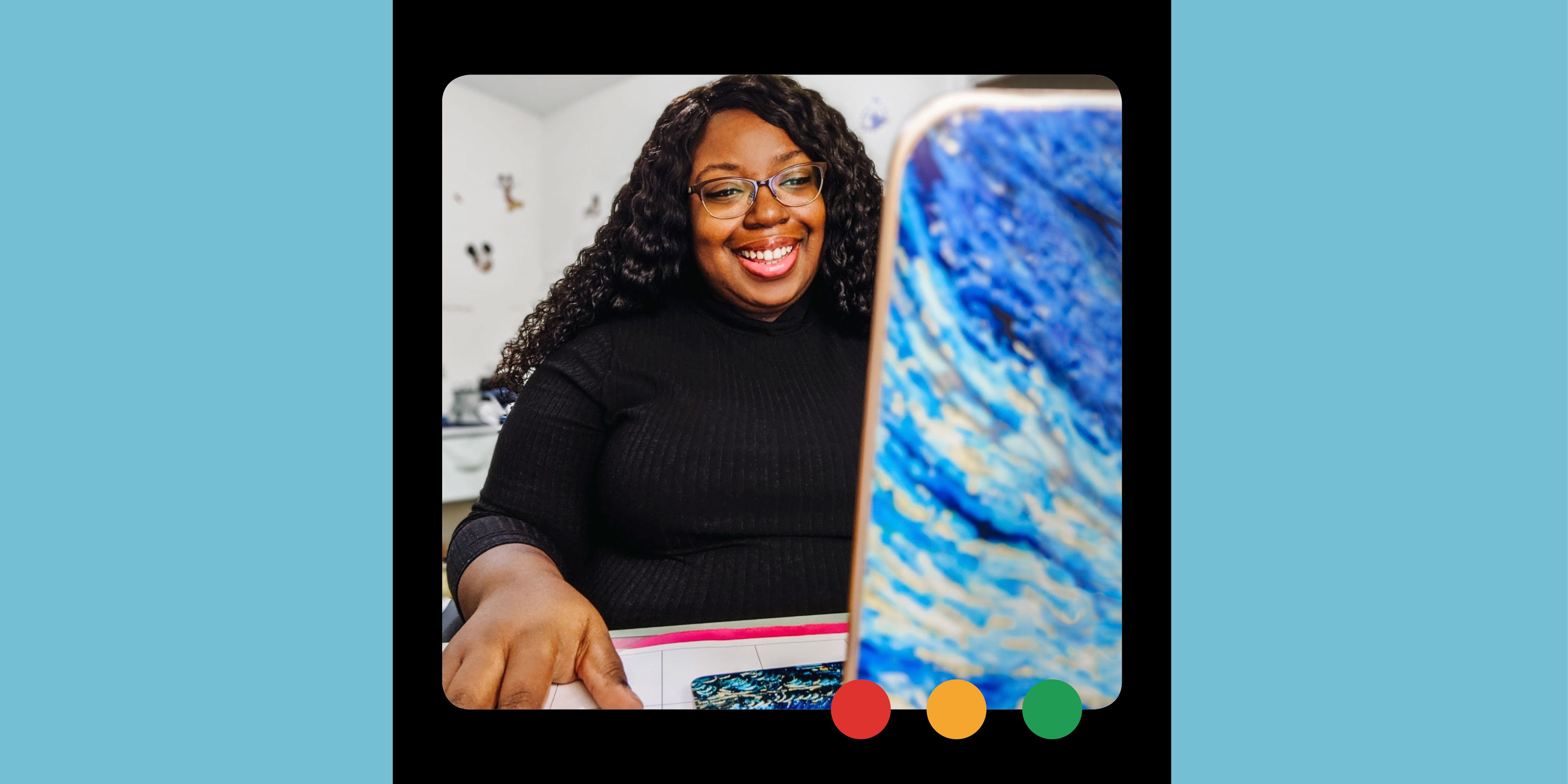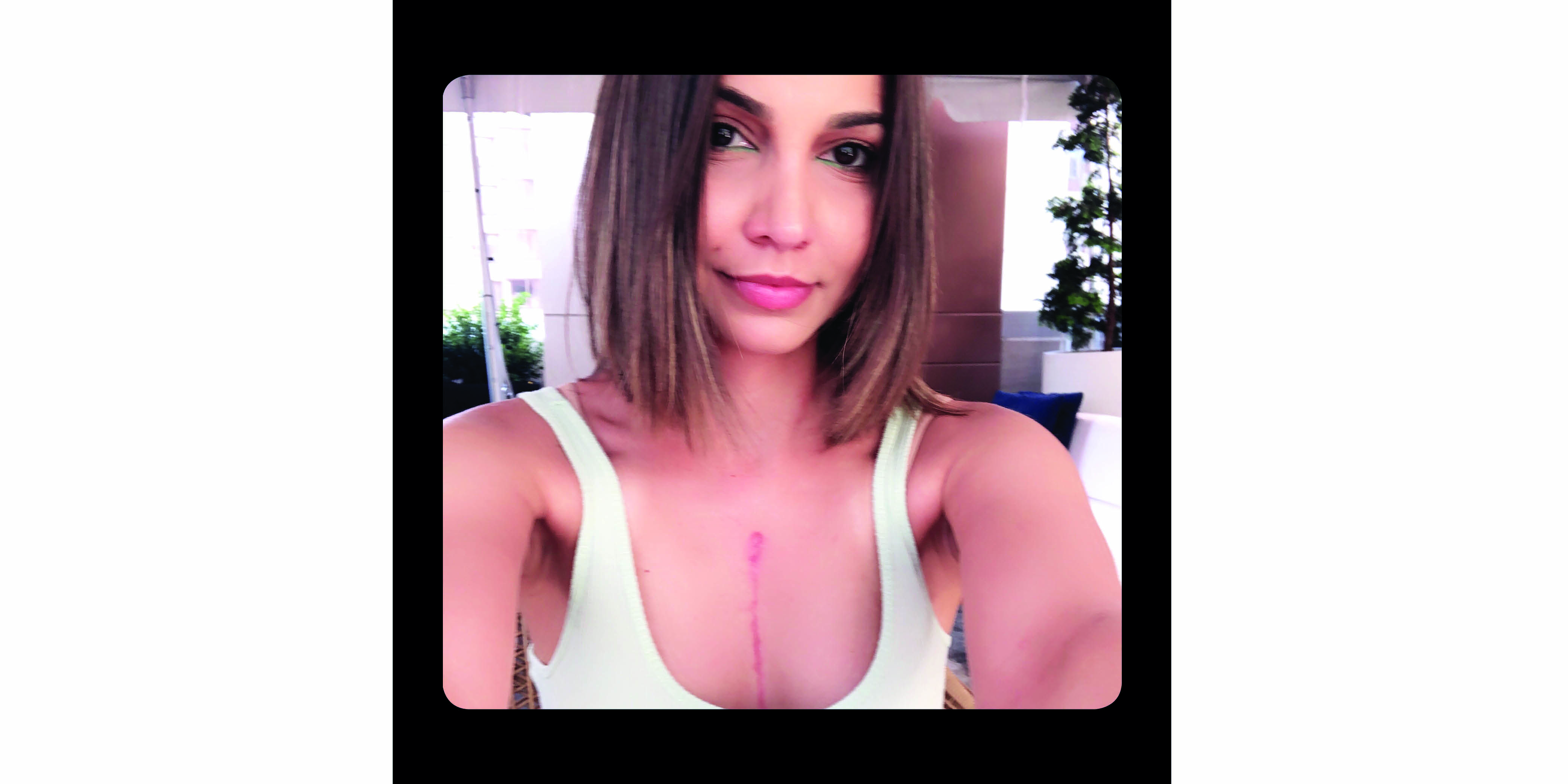Where do you go when you feel scared, confused, and lonely after a life-altering diagnosis? For many people, the answer is…online. In WH’s 2021 Owning It series, you’ll meet nine self-starters who used social media and digital tools to seek solutions and community they couldn’t find elsewhere. Barriers, broken.
Women tend to downplay symptoms. I’ve seen this in my patients as an emergency medicine physician, but also as a patient myself. Toward the end of 2018, I was coughing a lot and I was really tired, but I thought maybe it was just anxiety, and I didn’t do much about it. The symptoms got worse and worse—I would get short of breath just walking a few feet to the bathroom in my house—until one day, I really felt like I was going to die. My lips were blue and I was breathing so fast. I went to the ER, but as a patient, not a resident, because something was definitely wrong. But I don’t think anybody thought my heart was about to stop.
I remember I was in one of the hospital rooms, and then everything gets kind of blurry. I now know I was pulseless for a few seconds, and then intubated and put in a medically induced coma. After I woke up a day later, I found out I had a heart condition called dilated cardiomyopathy because of a genetic defect. My heart was failing, and at the beginning of January, I had to be put on the urgent heart transplant list. I ended up getting a heart transplant 11 days later, on January 15, 2019.


As an ER and ICU doctor, I was very realistic about my prognosis. Of course it wasn’t easy, and of course I wasn’t happy about it, but I decided there was no point in dwelling on it, in being sad or angry, because that wasn’t going to change anything. So in those 11 days, I made it a point to figure out what I wanted to do with my life if I made it through. I decided, If I’m alive by next week—oh my god, it will be so awesome if I am—I can use what happened to me and my platform as a physician to tell others about what I had been through. If I can do something else with my medical degree—have a voice to help people understand more about organ donation and heart disease, and be able to tell people that I went through these things—then I think that will help people understand them more.
I published my first blog post at www.achangeofhe.art on post-op day seven. The blog got bigger and bigger and bigger, and now I’ve connected with a lot of young women who have had heart transplants. So I got them all together, we made a WhatsApp group chat called Zipper Club (what many open heart surgery patients are “part of” due to the linear sternotomy scar on our chests), and now we talk like every day.

If I ever meet somebody on Instagram who’s young and female, I ask them if they want to join us. We talk about things like weight gain and other body changes with medications, and dating with a heart transplant—when and how to bring it up. Most people with heart transplants are older, but with these young women, we all have the same issues.
People don’t realize how mentally and physically exhausting it is to be a transplant patient. I take all of these medications every day. I have to be careful with what I eat. I can’t go to the beach without worrying about getting skin cancer much quicker and faster than the normal person. And as a young transplant patient, people just assume that nothing is wrong with you. That’s why I’m open about it.

This article appears in the March 2021 issue of Women’s Health. Become a WH Stronger member for a print subscription and more great perks now.
Source: Read Full Article
